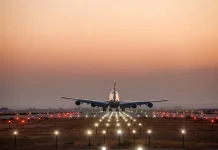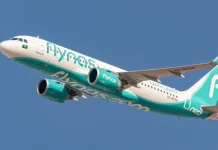A globally coordinated approach is needed for the travel and tourism sector to recover from the COVID-19 pandemic, according to a new report by global consulting firm Oliver Wyman and The World Travel and Tourism Council (WTTC), which represents the global Travel and Tourism private sector.
An estimated 121 million travel and tourism jobs and an US$3.4 trillion in global GDP could be lost as 90% of the global population are adjusting to life under travel restrictions and others stay home in fear of the virus revealed the report titled, To Recovery and Beyond: The Future of Travel and Tourism In The Wake Of COVID-19.
According to the report, four macro-trends will lead the way through recovery and beyond.
Demand Evolution
Preferences towards predictable and trusted destinations
Domestic vacations and the outdoors
Health and Hygiene
Concerns on protocols and crisis situations
Readiness to health protocols
Innovation and Digitization
Acceleration of digitalization in the travel & tourism sector for a seamless experience
Contactless technologies
Sustainability
Heightened public awareness and increased importance of wildlife / environmental impact
Growing demand for businesses’ support for local community inclusion and diversity
The report also highlights that enhancing the current seamless travel experience, embracing the integration of new technologies and enacting global protocols are essential to rebuilding traveler confidence. It showcases the need for the public and private sectors to work together to recover the millions of jobs impacted, rebuild traveller confidence, and build the sector’s resilience.
“As full year passenger numbers are forecasted by IATA to reach only 30% of 2019 levels in the Middle East, the implications to the travel and tourism sector brought on by COVID-19 were severe, leaving no traveler, businesses, workforce, and community untouched. As such, it has become essential for public and private sectors to work together to recover the millions of jobs impacted, rebuild traveler confidence, and build the sector’s resilience,” said Matthieu De Clercq, Partner at Oliver Wyman.
According to WTTC’s 2020 Economic Impact Report, during 2019, travel and tourism was responsible for one in 10 jobs (330 million in total), making a 10.3% contribution to global GDP and generating one in four of all new jobs.
With continual efforts being deployed to rebuild global consumer confidence and encourage the return of safe travels, Oliver Wyman’s second edition of the Traveler Sentiment Survey revealed that nearly 20 percent of global consumers are confident to travel now with interest in leisure travel remaining strong and presenting a growth since May. As the Middle East carefully monitors the opening of its borders to tourists and works through reestablishing travel confidence, there is a growing need for governments and institutions to be proactive in showcasing the highest safety and hygiene standards that are being adopted regionally.
De Clercq added: “It is notable that leaders have remained strong and steadfast in the face of adversity with governments in the Middle East having affirmed their commitment to supporting global travel and tourism. This is apparent through the efforts and investments directed towards launching incentives and facilities to support the sector such as streamlining travel and visa processes, improving safety and security, expediting the development and testing of a vaccine and recognizing the sovereign right of states to control the entry of foreign nationals.”




























